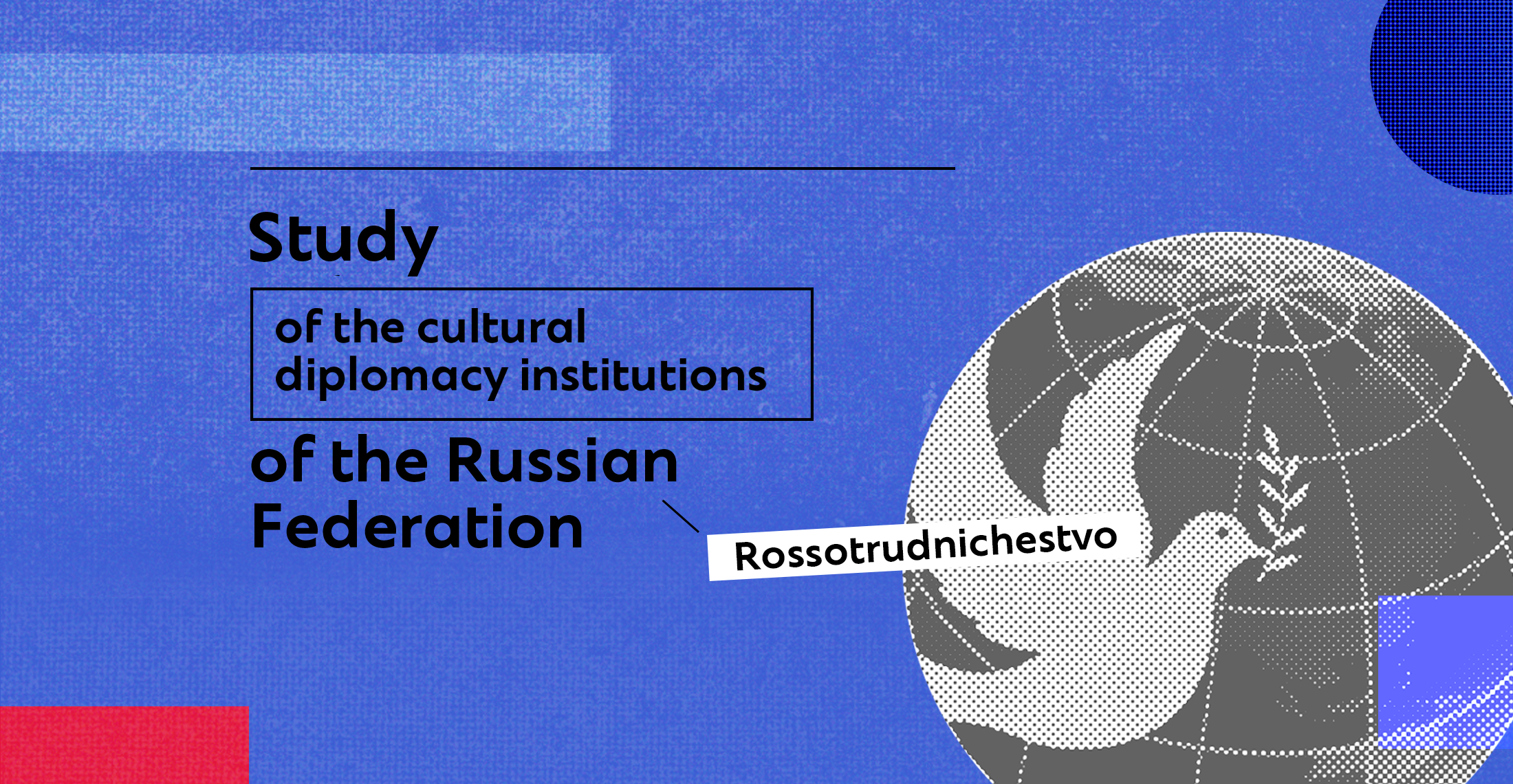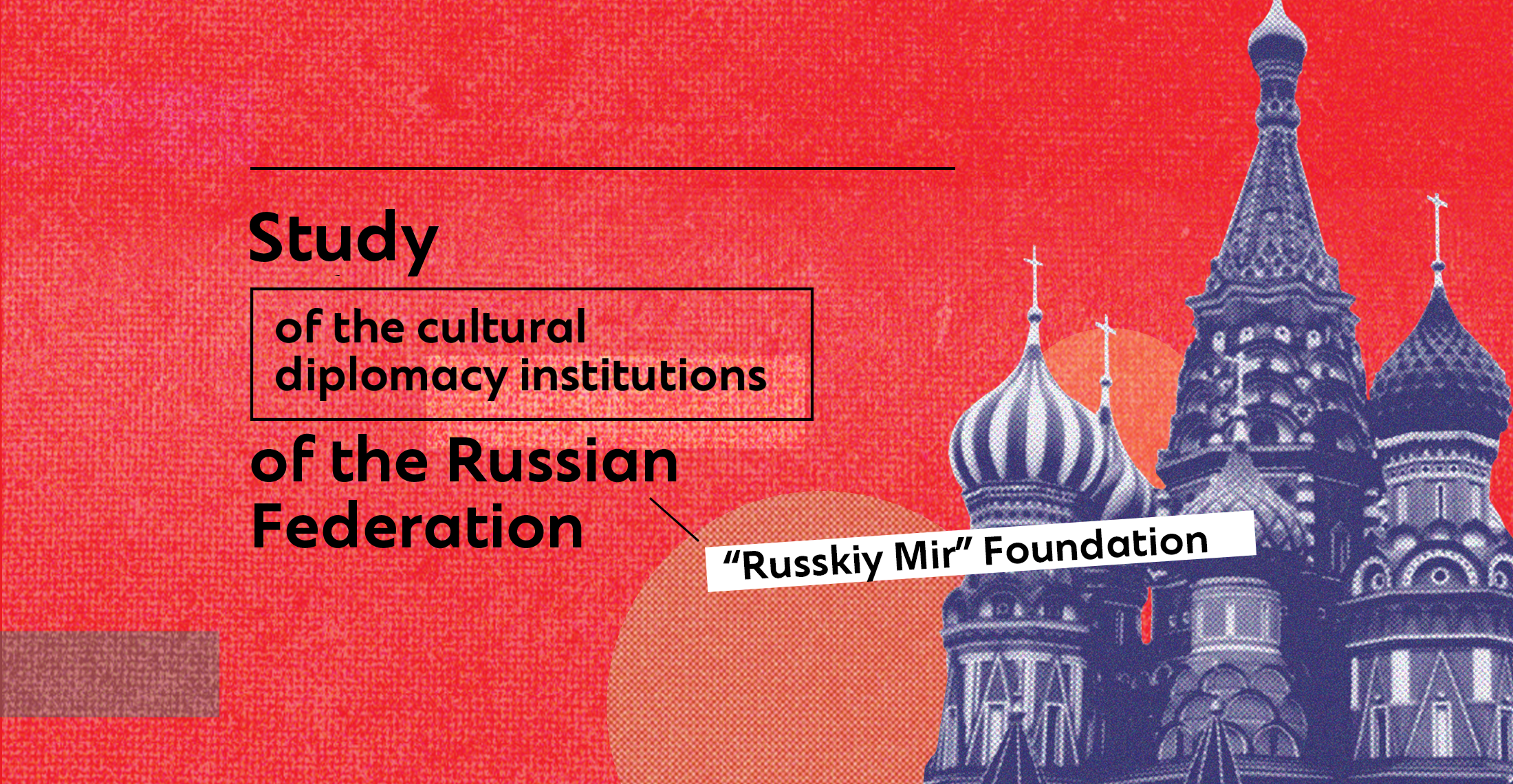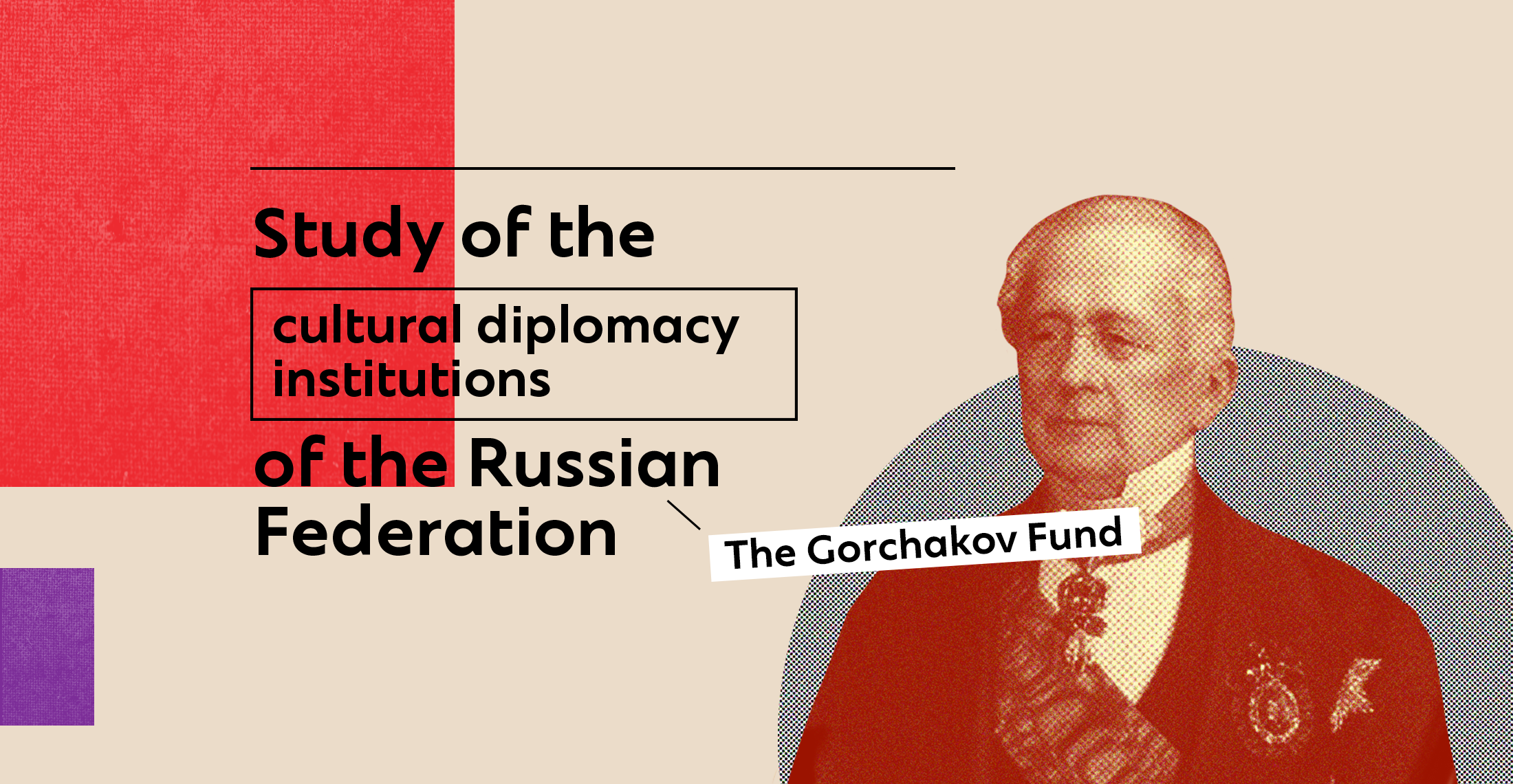The study
“The Russian Flag Will Be Flown Wherever Russian Is Spoken”: “Russkiy Mir” Foundation
Dates
March – July 2022
Researchers
Yulia Masiyenko, Kateryna Zahryvenko, Nadiia Koval, Denys Tereshchenko
About the study
This paper is part of the research project “Study of the cultural diplomacy institutions of the Russian Federation” conducted jointly by the Ukrainian Institute and the research agency MZ Hub.
The research is based on the publicly available information regarding the activities of the “Russkiy Mir” Foundation, as well as on its leading figures, ideological underpinnings, financial data, and official reports on events that were either directly organised or funded by it. Relying on these sources, we attempted to contextualise the organisation’s detailed portrait presented in this study within the framework of the Russian foreign policy’s legitimation attempts as well as the Russian regime’s modifications in recent years.
The study’s main conclusions
- The political concept of the “Russian world” emerged at the end of the 1990s but by the beginning of the next decade, it had become the ideological foundation of Russia’s cultural policy in former Soviet republics and far beyond. The adherents of the “Russian world” consider it as a sort of (imagined) cultural community primarily outlined by the Russian language, Orthodox religion, and a set of archaic anti-Western values. For the Russian regime, the concept of the “Russian world” is the ideological means for the reconsolidation of the Russian sphere of influence following the collapse of the Soviet Union.
- The geographic core of the “Russian world” consists of Russia, Belarus, and Ukraine, but is not constrained to them. All other communities that purportedly belong to the “Russian world,” such as ethnic Russian or Russian-speaking diasporas and admirers of Russian culture from various regions of the world, are layered one on top of the other in concentric circles.
- Though legally established as a non-governmental organisation, the “Russkiy Mir” Foundation is directly and tightly under the control of the Russian regime. Russian ministries for foreign affairs and education are officially its founders and ultimately its only sponsors. Moreover, since 2021, the Foundation’s management staff is directly appointed by presidential decree, and the Foundation’s boards include representatives of the Russian presidential administration, government, and parliament. From 2015 to 2020, the Foundation’s annual budget ranged between 460 and 580 billion Russian roubles, almost all of which came from the federal budget.
- The personality of Vyacheslav Nikonov has dominated the activities of the Foundation since its very establishment. Nikonov is a politician and historian extremely loyal to the regime, a grandson of Vyacheslav Molotov, minister of foreign affairs of the USSR during the Stalin’s reign. Nikonov is a striking illustration of the direct continuity between Russian and Soviet elites. By serving on each other’s boards, the Foundation and other related Russian organisations are closely interconnected.
- The establishment of representations in other countries and allocation of grant funds are the two main policy instruments to the Foundation’s avail, which renders it rather similar to analogous Western institutions. Unlike them, however, the Foundation uses these instruments in a manner that is uncharacteristic of open and democratic institutions.
- The network of Centres and Cabinets of “Russkiy Mir”, which are the Foundation’s representations abroad, as well as the network of friendly organisations, are generally well-aligned with the concentric circles of “Russkiy Mir’s” geography. This network is funded by the Foundation or its business partners and is geared towards promoting the study of the Russian language worldwide. As of the beginning of 2022, there were 104 operating Centres in 52 countries and 128 Cabinets in 57 countries, as well as more than 5700 friendly organisations in almost 160 countries, including approximately 2,700 in Russia.
- The Foundation’s grant funds are allocated to projects aiming at promoting the study of the Russian language, promoting Russian culture (literature, choreography, music, theatre, etc.), and major Russian narratives, such as Russian interpretations of World War II and the Soviet period.
- The Foundation disposes of a media toolkit of its own making, including a web portal, a magazine, a broadcasting company, and various social media pages. All the Foundation’s media outlets and web pages are rebroadcasting the Russian regime’s highly militarised and expansionist rhetoric. Among the topics usually covered are numerous examples of a policy of cultural assimilation in the occupied Ukrainian territories, as well as the allegedly ever-increasing support of Russia worldwide.
- On the one hand, “Russkiy Mir” Foundation is an organisational embodiment of the “Russian world” concept which supports and legitimises the restoration of Russian dominance in Eastern Europe and throughout the world. It was intended to replace, as a unifying concept, the Soviet myth regarding Communist/Socialist prospects. On the other hand, the Foundation has also become a tool for imposing and propagating Russian archaic cultural patterns and practices, i.e., the same nineteenth-century writers, poets, and composers. The Foundation has little regard for contemporary and modern aspects of Russian culture and does not normally engage in dialogue with the cultures of the countries in which it operates.



